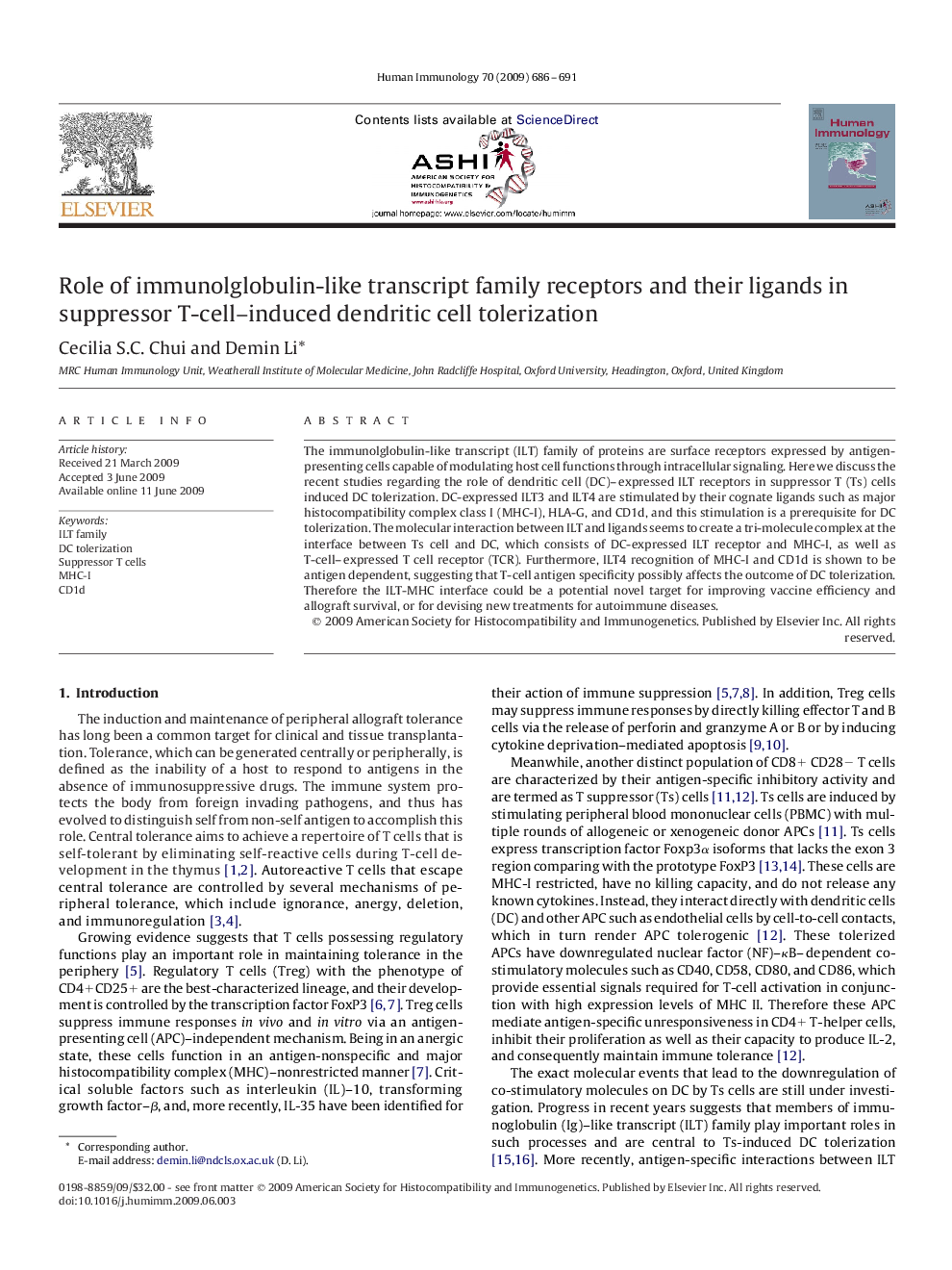| Article ID | Journal | Published Year | Pages | File Type |
|---|---|---|---|---|
| 3352187 | Human Immunology | 2009 | 6 Pages |
The immunolglobulin-like transcript (ILT) family of proteins are surface receptors expressed by antigen-presenting cells capable of modulating host cell functions through intracellular signaling. Here we discuss the recent studies regarding the role of dendritic cell (DC)–expressed ILT receptors in suppressor T (Ts) cells induced DC tolerization. DC-expressed ILT3 and ILT4 are stimulated by their cognate ligands such as major histocompatibility complex class I (MHC-I), HLA-G, and CD1d, and this stimulation is a prerequisite for DC tolerization. The molecular interaction between ILT and ligands seems to create a tri-molecule complex at the interface between Ts cell and DC, which consists of DC-expressed ILT receptor and MHC-I, as well as T-cell–expressed T cell receptor (TCR). Furthermore, ILT4 recognition of MHC-I and CD1d is shown to be antigen dependent, suggesting that T-cell antigen specificity possibly affects the outcome of DC tolerization. Therefore the ILT-MHC interface could be a potential novel target for improving vaccine efficiency and allograft survival, or for devising new treatments for autoimmune diseases.
